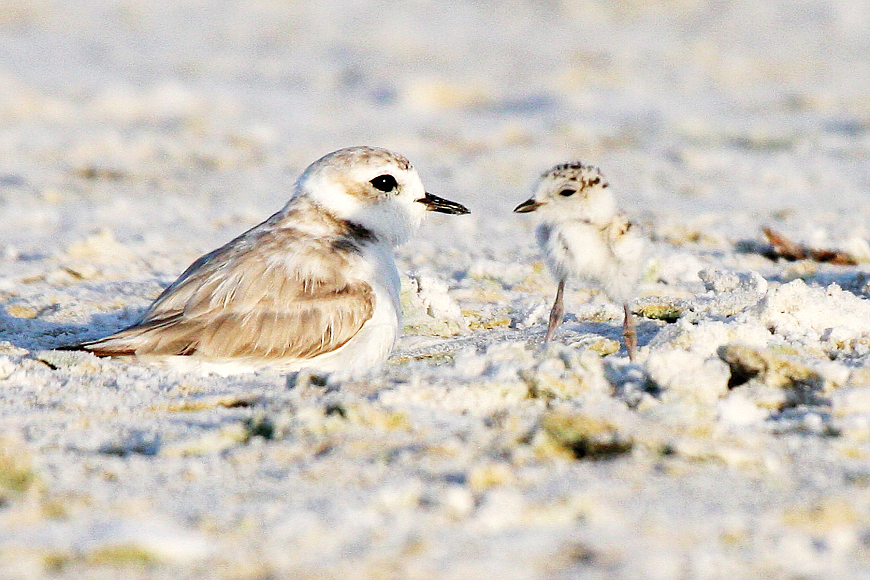- January 9, 2026
-
-
Loading

Loading

As the calendar advances into April, shorebirds are getting the signal that it’s time to nest on Siesta Key.
Although the area sees shorebirds, such as black skimmers, least terns and occasionally American oystercatchers, the key nesting bird on Siesta is the snowy plover.
Snowy plovers are small, solitary nesters, which means a male and a female defend a small territory of nesting and foraging habitat from other snowy plovers.
Kylie Wilson, the shorebird stewardship and monitoring coordinator for Audubon Florida, said that although the snowy plover is the largest population of nesting bird on the Key, there are only about 10 nests mostly on the northern portion of the island between beach accesses 11 and 4.
The low population is attributed to their territorial nature.
“When we say they defend their territory, I mean it,” Wilson said. “As cute as they are, they are aggressive, and they do not like to share their space.”
Snowy plovers nest earlier than many other shorebirds. They pair up throughout February and typically begin to nest in March.
Camouflaging is more easily done in areas of the beach that have bits of vegetation.
That is why, Wilson said, it is important to stay out of marked nesting areas. “If you don’t see a bird in it, that’s kind of the point,” Wilson said. “They don’t want to be seen.”
Since 2018 there have been 25 documented snowy plover nests, but not a single bird has hatched due to disturbances.
To allow the birds to nest naturally, Wilson said humans should avoid activities that would disrupt the birds from normal breeding behavior. Those activities could include chasing birds, walking dogs past nests, leaving trash on the beach, flying drones or kites and walking in nesting areas.
Additionally, if you notice another person disturbing the birds, you are asked to report it to the Florida Fish and Wildlife Conservation Commission hotline at 888-404-3922.